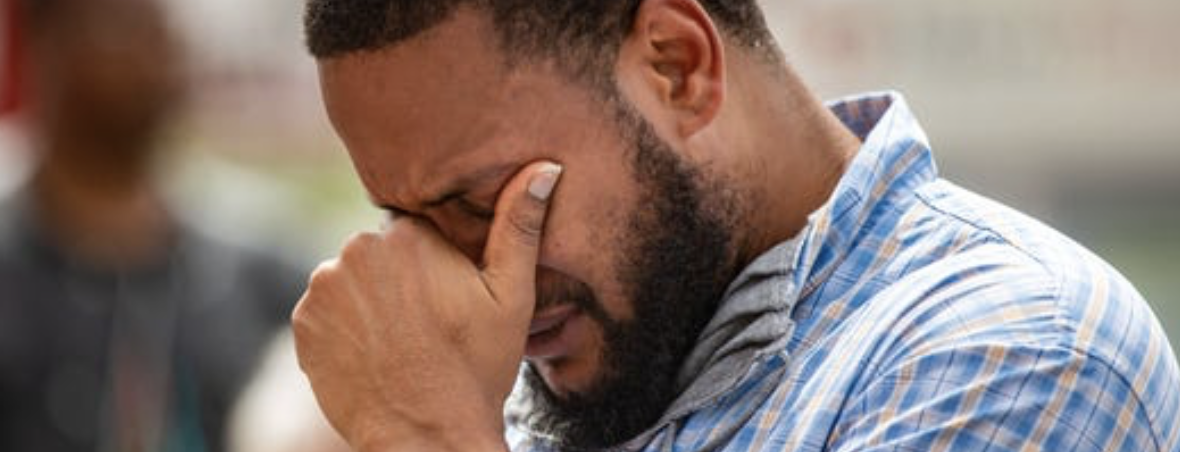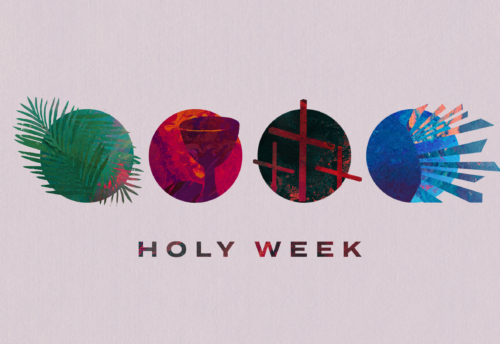
“I Can’t Breathe.” “Black Lives Matter.” “My Skin is Not a Sin.” These were just a few of the signs carried and lines chanted by peaceful protesters in downtown Smyrna this past weekend. After witnessing the protest first hand, I am still trying to process the experience. My heart is filled with sorrow and heaviness. Everything in my spirit begs for relief and for time to sit and to think. That opportunity will come, but not now. No amount of time would leave me room to preparedly address a topic that overwhelms and cuts so deeply. I humbly offer a few theological reflections for you to ponder and a prayer that I hope you can embrace.
I will begin boldly. John Perkins, a civil rights activist, Bible scholar, and prolific author, writes: “There is no institution more equipped and capable of bringing transformation to the cause of reconciliation than the church. But we have some work to do.” Perkins’ declaration holds together two indisputable truths that must be embraced with immediacy.
First, followers of Jesus are the harbingers and guardians of racial reconciliation because followers of Jesus are the harbingers and guardians of the gospel. In the Bible’s opening chapter, God makes male and female in His own image (Genesis 1:26-27). Dietrich Bonhoeffer, who actively opposed Nazi tyranny, asserted, “At this point the narrative is about us; it is about the creation of humankind.” God looks upon humanity and declares us to be the most beautiful thing He has ever made. The implication of being made in His image is that God declares we look like Him. We all descend from the same mother and father, and the message of the Bible is that God perpetually endows every generation with the same declaration of oneness and love. But we did not remain in this state of fellowship, and this is why our present pain and suffering runs so deeply. The rebellion of our first father and mother in Genesis 3 has marked us all. The brokenness that our sin has caused is the reason we show preference for some people and devalue others. Our sinfulness is destructive and injurious. Sadly, we can be guilty of succumbing to divisive behavior and blindly not even realize our offense. But while we grope around for a redemption we cannot merit, God intervenes. Our sinful autonomy, which brings darkness and death, is cancelled and atoned for by the finished work of Christ. Now, we walk in light and in life. When we turn to Jesus, no matter how sinful and broken our state, we discover that He never casts us out (John 6:37). Jesus gives us a ministry of reconciliation (2 Corinthians 5:18). Thanks to the gospel, we authentically live in harmony with one another (Romans 15:5). For all of eternity, in heaven, “a great multitude that no one could number, from every nation, from all tribes and peoples and languages,” will cry out, “Salvation belongs to our God who sits on the throne” (Revelation 7:9-10). There is no need to wait for us to experience this unity in heaven. In fact, it is sinful for us to think it acceptable to do so. We can, and must, taste of its goodness now.
We are to herald and protect these truths. Christians should lead the way in love, and while never compromising the exclusivity of Christ, the respect we hold for others should not be a respecter of persons. Second only to the command to love our Great Creator is the command to love others. None of these assertions should come as a surprise. Jesus declares that every person is the most beautiful thing He has ever made. Through all of our affections and actions, as we reflect a God who created us and then redeemed us, we are mandated to echo this beautiful declaration.
Second, there is so much work to do. Until a church becomes a safe place where hurt and suffering can be honestly expressed, it still has work to do. Until the church roll and its leadership reflects the multi-ethnicity of the community it is called to reach, it has work to do. Until a church is passionately committed to think and act biblically, and in the places that it does not, only accept confession and repentance, it still has work to do. Until every member reaches out with warmth and hospitality; until our ministries aim to reach all of the ethnicities that call our city home; until the pursuit of racial diversity is celebrated as a pursuit of love and beauty and not an obligatory chore, it still has work to do. Brothers and sisters, our church has much work to do.
First Baptist, because Christ is in us, we are equipped and capable of bringing transformation to the cause of racial reconciliation. God can do through us and in us exceedingly more than we have ever thought or imagined (Ephesians 3:20). Join me, in the spirit of Nehemiah 2:18, in asking God to strengthen our hands for this good work. Pray this prayer with me:
O, Lord, words fail us to express the grief in our hearts over the racial unrest that has swept our country. As followers of Jesus, we long to be a people that brings you glory, and in the intentional and unintentional ways that we have contributed to this pain, we fall on your mercy and beg for the forgiveness of those we have hurt. Recent events have broken our hearts, but it is the generational wounds of invidious discrimination and suffering from which these events are sourced, that breaks our hearts the most. They demonstrate how truly heinous our sinfulness can be, and we know them to be an affront to Your holiness. All that happens under your rule and reign works together for good. Lord, use these times of rightful mourning to mold and shape us into the image of your Son. Show us the sinfulness of our ways so that our fellowship with you and one another can be restored. Give us hearts modeled after your own, for yours beats in a way that is always gentle and lowly (Matthew 11:29). May we boldly and courageously share the gospel with the words we speak, and may our actions align with these glorious truths. We subject ourselves to the gospel’s transformative work with our every waking moment. May the joy of worshipping with believers of every nation, tribe, and tongue, become our regular, weekly practice. Teach us how to love more deeply, trust you more fully, and always consider the needs of others to be greater than our own. We depend on you, Lord, to change us and unite us. May your love be demonstrated in our obedience.
In Jesus’ name we pray,
Amen.

